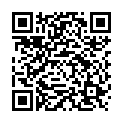|
|
|
| Module code: MAM_19_V_3.09.DZW |
|
|
2V+1P+1PA (4 hours per week) |
|
5 |
| Semester: 3 |
| Mandatory course: yes |
Language of instruction:
German |
Assessment:
Practical examination with term paper
[updated 04.11.2020]
|
MAM_19_V_3.09.DZW (P241-0029) Engineering and Management, Master, ASPO 01.10.2019
, semester 3, mandatory course, Specialization Process Engineering
MAM_24_V_3.09.DZW Engineering and Management, Master, SO 01.10.2024
, semester 3, mandatory course, Specialization Process Engineering
|
60 class hours (= 45 clock hours) over a 15-week period.
The total student study time is 150 hours (equivalent to 5 ECTS credits).
There are therefore 105 hours available for class preparation and follow-up work and exam preparation.
|
Recommended prerequisites (modules):
None.
|
Recommended as prerequisite for:
|
Module coordinator:
Prof. Dr.-Ing. Michael Sauer, M.Sc. |
Lecturer:
M.Eng. Barbara Kaiser
[updated 13.07.2025]
|
Learning outcomes:
After successfully completing this module, students will be familiar with the possibilities and techniques of using digital twins for process development and optimization and be able to apply them themselves.
They will understand the Internet of Things and Big Data as interdisciplinary topics of mechanical engineering and electrical engineering. They will be able to explain, simulate and analyze selected technical solutions.
[updated 04.11.2020]
|
Module content:
Based on the example of simple technical systems, their virtual twins will be developed and simulations carried out, data will be generated and compared. With clearly defined goals, students will be able to increase their general understanding of the developed system by reading out the individual data and creating a visual image. In this manner, it is possible to carry out optimizations in the development phase.
Students will receive deeper insight into the Internet of Things. They will become familar with network-enabled sensors and learn to work with them themselves. They will practice the automated evaluation of sensor data and handling large amounts of data. Based on the exemplary generation of neural networks, students will learn techniques that can be used to generate a model image based on measured data.
[updated 04.11.2020]
|
Teaching methods/Media:
Seminaristic instruction. Compact lecture during the first part of the module. Students will develop simulation models with data modelling and the analysis of e.g. flow systems, photovoltaic systems, energy storage, combined heat and power plants and networks using scientific articles and (Labview-/ AMESim-)templates.
[updated 04.11.2020]
|
Recommended or required reading:
[still undocumented]
|


